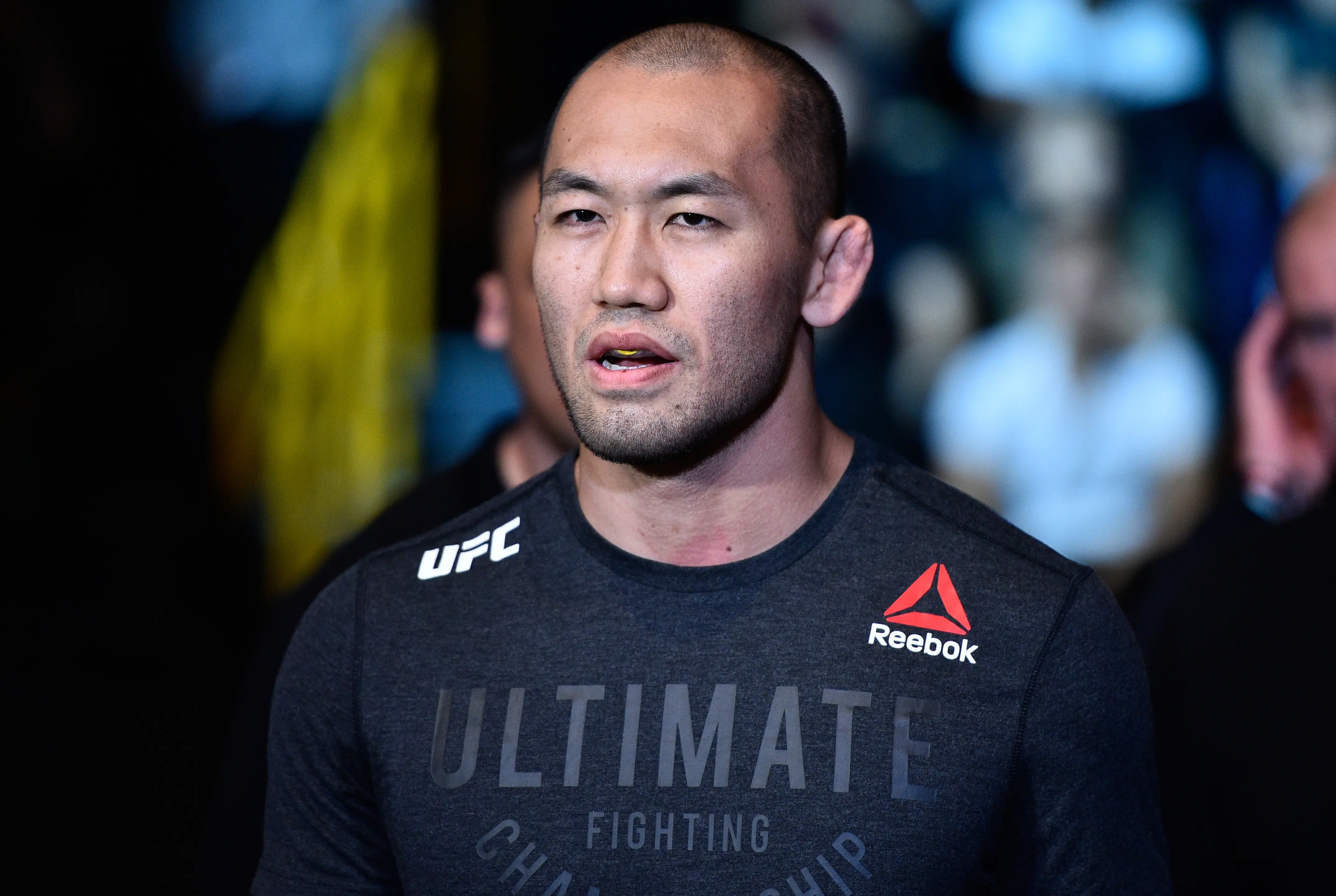Global success for Physical: Asia: Leading nine markets and climbing to fourth globally
-
 Yushin Okami from Team Japan (Image via Getty)
Yushin Okami from Team Japan (Image via Getty)Netflix’s Physical: Asia has pulled off what few reality shows manage — a worldwide breakout in less than a week.
The intense, team-based competition is now sitting at No. 4 globally among all Netflix TV titles and has already hit No. 1 in nine countries, including South Korea, Indonesia, Thailand, the Philippines, Bahrain, Turkey, the UAE, Qatar, and Hong Kong.
The show, which premiered on October 28, 2025, is also trending inside the Top 10 in 73 countries — a rare feat for a regional spin-off.
The momentum has turned Physical: Asia into one of Netflix’s most talked-about shows of the season, backed by an expanding fanbase across Asia, the Middle East, and beyond.
Physical: Asia dominates Netflix’s global charts
When Physical: Asia launched, within 48 hours, it shot to No. 1 on Netflix’s “Today’s Top 10 Series” in South Korea, outpacing scripted dramas and international thrillers.
It rose much more rapidly in the Philippines and Indonesia - both nations featured in the contest, where national pride and curiosity had spiked the viewership.
The combination of intense competition, cultural depiction, and cinematic scenes has proven very appealing to the viewers.
Part of Physical: Asia’s appeal lies in its scope. It is not only the sportsmen of one country who push their boundaries - it is a whole continent of rivals and competitors who are competing to show their pride.
A total of eight national teams are involved; these include South Korea, Japan, Thailand, Mongolia, Turkey, Indonesia, Australia, and the Philippines.
The captain in every team is a world-renowned sportsman. Team Philippines is led by Manny Pacquiao, the legendary boxer and an eight-division world champion.
South Korea has the first UFC fighter, Kim Dong Hyun, who is the captain of Team Korea. One of the most successful MMA fighters in Japan is Yushin Okami, the leader of Team Japan, and the former UFC Middleweight Champion of Australia is Robert Whittaker.
These teams combine to create a cast of 48 athletes, all competing in missions that are quite elaborate and high-intensity, which challenge strength, coordination, and mental endurance.
The challenges behind Physical: Asia’s viral rise
Each episode of Physical: Asia showcases cinematic-scale physical trials that feel more like live-action sports movies than reality TV.
The first batch of episodes featured the “Territory Occupation Battle,” where athletes clashed in a massive sandcastle arena, and the “Shipwreck Transport Battle,” a grueling test involving hauling heavy boxes across an unstable wreck.
Viewers have been sharing reactions online in real time, praising the show’s production value and unpredictability.
Comments like “The scale is different because it’s a national team competition” and “It’s heart-pounding and exciting” have trended across X (formerly Twitter).
One viral post called it “the Olympics of muscle,” capturing how the format balances spectacle with genuine competition.
The success of Physical: Asia suggests a growing appetite for non-scripted shows that feel universal — rooted in competition but grounded in human stories.
What this means for Netflix and the Physical franchise
For Netflix, Physical: Asia’s success reinforces its strategy of investing in globally scalable reality formats.
Following Physical: 100’s viral popularity in 2023 and 2024, the streamer’s decision to expand the concept into a regional showdown appears to have paid off.
The series’ global ranking also signals the potential for future editions beyond Asia. With 12 episodes rolling out weekly through November 18, fans are already calling for European or Latin American spin-offs.
With its grand visuals, legendary captains, and cross-border rivalries, Physical: Asia isn’t just another spin-off — it’s a cultural event that’s redefining what global reality TV can look like.
Stay tuned fo more updates.
TOPICS: Physical: Asia, Netflix, Physical: Asia Manny Pacquiao, Physical: Asia South Korea, Physical: Asia Team Australia, Physical: Asia Team Japan, Physical: Asia Team Philippines, Physical: Asia Team Turkey
- How Physical: Asia fueled Enkh-Orgil Baatarkhuu's momentum before his ONE World Title Fight
- Physical: Asia returns with Mongolia spin-off: Release dates, cast, and what to expect
- Physical: Asia star Robert Whittaker welcomes baby girl Azura as castmates flood his Instagram with congratulations
- Netflix's Physical: Asia sparks debate after using 'Shinchi' for Kimchi in Chinese subtitles